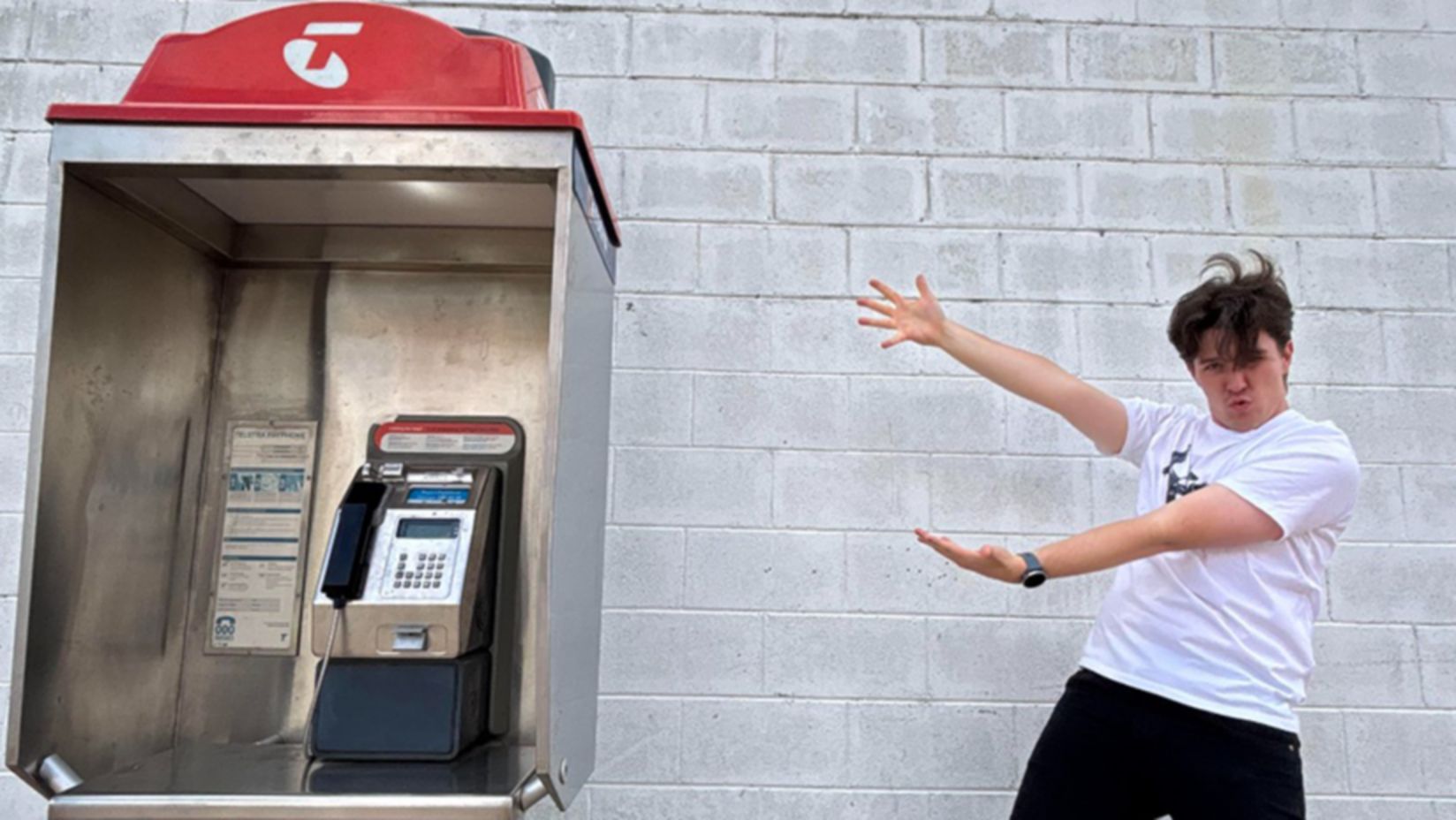Drawing on hard facts to protect Aussie teens from spurious stories
With support from Telstra Foundation, Alannah & Madeline Foundation is delivering essential media literacy education for secondary students, through an innovative, gamified resource that reflects their real world experiences.

Like any 15-year-old, Sasha Taylor-Holmes loves social media and appreciates the connections it provides to friends, social events, and “important stuff”. Sasha admits this includes some celebrity gossip among more serious news. But sometimes, particularly when it comes to the news, Sasha admits not always spotting the difference between facts and cleverly-disguised “fake news”.
“Sometimes it’s not even that clever,” concedes Sasha, a pupil at Daylesford Secondary College, who used to study under Alannah & Madeline Foundation Program Advisor Emily Wilden and is now helping her field-test resources developed by the Foundation’s eSmart Media Literacy Lab (MLL) to help young Australians spot and safely manage misinformation online.
“With celebrity news, you can often tell from the number of followers whether an account is real or not,” says Sasha. “But with news reports, it’s not always obvious where the ‘news’ came from or how real it is.”
Sasha reels off a list of the red flags that can alert readers to biased or subjective reports – lack of “hard evidence”, limited sources, sloppy grammar, computer-generated images. They’re things Sasha learned from the latest module on Misinformation and Mischief in MLL’s recently-completed series of Year 10 activities.
It’s a module that insightfully probes people’s reactions to debatable ‘news’, shares witty recipes for misinformation (“sensationalism concentrate plus tincture of shareability”), and confronts the challenges of reporting fake news: the long process of getting a post taken down, the risks of drawing further attention to it, or even putting friends offside.
Shocking impacts
While the exercises cite two examples of the shocking impacts of “fake news” – during the vote count of the last US Presidential election and the height of COVID-19 – the Alannah & Madeline Foundation’s Senior Advisor for Learning Erin Pearson says it’s important for young people to take time to analyse things they read online and put them in perspective.
“There’s always been bias in the news, but the instant feedback loop of social media holds so many more risks for young people,” says Erin. “Divisive comments you read on the Voice or Donald Trump may feed your anger and outrage, but it’s rarely useful to express these online because they can feed into your algorithms and boost the posts you found offensive in the first place.”
Erin oversees learning content for the MLL, which since 2020 has been developing a wide range of classroom and online exercises for teachers and students aged 12-16. The Lab grew out of a research partnership with the eSafety Commissioner’s Office and the Australian Federal Police, which has evolved rapidly to include separate products for pre-schoolers and primary students – with the ultimate goal of providing a cohesive media literacy platform for all Australians aged four to 16.
Canvassing teachers' feedback
In 2022, fuelled by alarming evidence of Australian children’s news-gathering on social media1, Refer to 1 below Telstra Foundation offered funding to the Alannah & Madeline Foundation to host a series of workshops to canvas feedback from teachers nationwide on the impact of MLL’s resources. To date, 25 virtual workshops have been held and the findings used to inform new content addressing different channels and challenges facing children of specific ages – and aligning them with different parts of the secondary curriculum.
Ariana Kurzeme, the Foundation’s Director of Policy and Prevention, says Telstra Foundation’s support has enabled a deeper level of conversation with educators using the Lab’s resources, which at the last count had reached 446 high schools. “The workshops are giving teachers the confidence, knowledge and tools to teach digital literacies to their students, and help those students become more media savvy – questioning what they see and practising smarter, safer online behaviours.”
“The new content is deliberately designed to have points that surprise and make kids curious, that get them thinking and talking,” adds Erin. “We’ve been working closely with researchers from the University of Canberra’s News and Media Research Centre, and each time we’ve developed new modules we’ve had academics and SMEs testing them, and holding them up against best-practice media literacy frameworks.”
1. News and Young Australians in 2020 (PDF, 422KB)
Inspiring conversations
Alannah & Madeline Foundation facilitators have also tested the new content with students in Melbourne, Sydney and Hobart, getting direct feedback on what works and doesn’t, what inspires the best conversations. “It’s really interesting going into schools, where kids often cannot speak that freely, so it takes a great facilitator who really knows how to engage these age groups, to find out what bugs them and what they really want to talk about when it comes to online stories,” says Erin.
Like the Internet itself, MLL is a dynamic beast, continually adapting to address the latest channels that teens use to communicate, the latest sharing algorithms, ‘deepfake’ technologies and chatbots. “Of course, AI has now become a big focus for the program, informing how news is developed and presented, and providing all sorts of new challenges in terms of veracity – and mendacity,” says Erin. “We need to stay on top of these trends, but fortunately we have some of the best minds in academia, in online safety and legal protection, working with us on these resources – so we’re confident we can stay on top of all these challenges.”
More information
About Telstra Foundation
Telstra Foundation’s mission is to create a better-connected world for children and young people so they can live healthier lives online.



